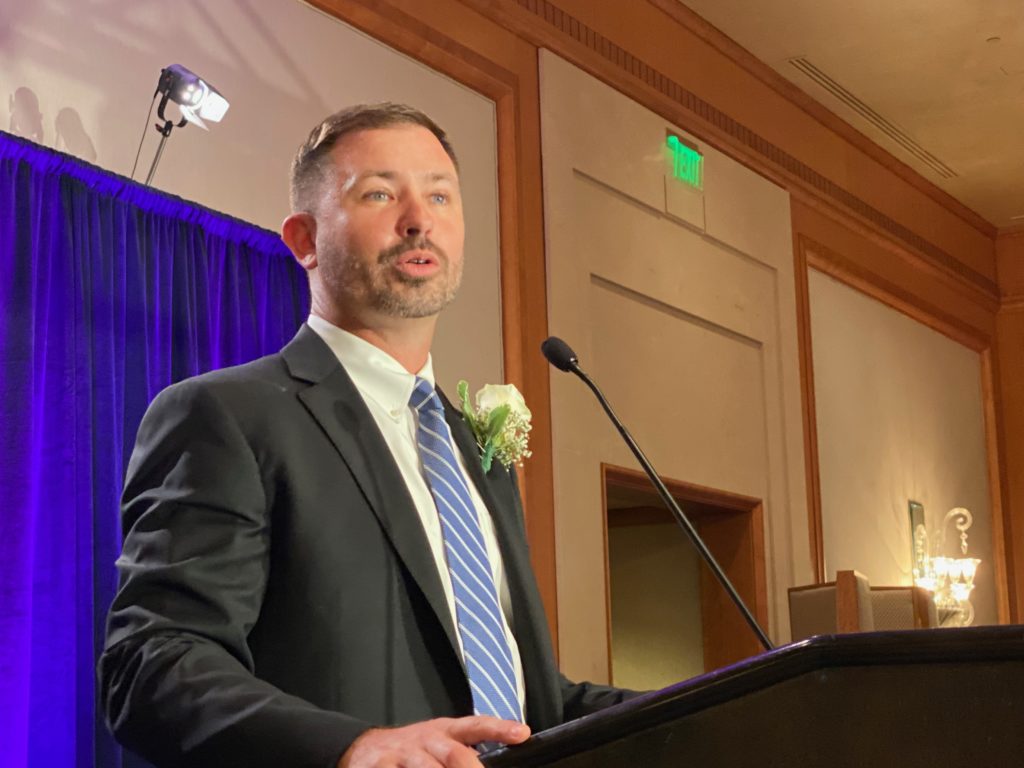

|
|
The recently passed state budget changed how principal pay is calculated, putting an emphasis on school performance during one of the most challenging years in recent memory. Now, many principals are concerned their salaries will decrease by $7,000 to $18,000 effective Jan. 1.
Historically, principal pay was determined by a base salary according to a school’s average daily membership, with one potential pay bump if a principal’s school met growth score expectations in any two of the prior three years and another potential pay bump if the school exceeded growth score expectations in any two of the prior three years.
In House Bill 103, the short session budget which the General Assembly ratified on July 1 and Gov. Roy Cooper signed on July 11, the leeway for either meeting or exceeding growth expectations in two out of three years is removed.
Now, salaries effective Jan. 1, 2023 through June 30, 2023 will only consider performance scores from the 2021-22 school year — a year when principals were dealing with myriad issues related to the COVID-19 pandemic. The budget doesn’t say how salaries past June 30, 2023 will be calculated.
Many principals and education leaders were caught by surprise when news of this change began circulating this past week.
Tabari Wallace, the state superintendent’s principals advisor, said no one had flagged this issue for him. Last year, Wallace convened an advisory group of principals to offer guidance to the Department of Public Instruction, the State Board of Education, and the General Assembly. The General Assembly reached out for advice on several matters, Wallace said — but they never raised this one.
Initially, some thought the change was made to re-norm the data since students didn’t take year-end tests in 2019-20 and schools received waivers for performance grades in 2020-21. However, a senior staffer for Senate President Pro Tempore Phil Berger’s office said the change was intentional and made because legislators with input in the process believe it’s a better way to calculate principal pay.
HB 103 includes the salary schedules for principals and shows the consequences of a principal whose school, for example, drops from exceeding growth to either meeting or not meeting growth during the turbulent 2021-22 school year.


Patrick Greene, the newly named state principal of the year, raised the issue to the State Board of Education on Thursday afternoon. In an email he sent to the General Assembly on Thursday, on which he copied EdNC, Greene wrote:
Principals throughout our state successfully led their schools to higher growth performance before the COVID shutdown took students out of our schools. Many of these principals remained in their schools throughout the past two years and led their students and staff in what many will acknowledge as the most challenging period of our careers. The external social and human capital issues required constant leadership to keep the school doors open and to restore the environment so that learning could take place. It would be a shame to reduce any school leader’s pay by $9,000 or potentially $18,000 based entirely on the performance of a singular, exceptional year.


Greene told EdNC after the State Board meeting that he believed this change could be the result of lacking data for the previous two years. To get around that issue, he requested the General Assembly grant a hold harmless for principals until two years of post-pandemic growth data is available.
However, Lauren Horsch, deputy chief of staff for Berger, said the change was made for other reasons.
“By moving to a one-year look back period it’s more likely that a principal would meet or exceed growth scores compared to the previous standard,” she wrote in an email to EdNC. “That previous standard also prevented new principals from moving up the pay scale since they’d have to wait to have at least two years of growth scores. The General Assembly’s non-partisan fiscal staff predicts that under the one-year growth period more principals are likely to move up the pay scale based on the most recent one-year growth scores.”
Horsch, whose full statement can be viewed here, provided EdNC with a graphic that purports to show similar or even greater percentage of principals receiving elevated pay under the new rule than the old one:


Several principals and former principals, however, question whether that will be the case. The 2021-22 performance data will be released in the fall.
Shirley Prince, executive director for the North Carolina Principals and Assistant Principals’ Association, called the change concerning. She said her organization has long taken issue with tying principal salaries to EVAAS scores (which are used to generate growth measurements), because by her estimation it captures how a student performs in one moment of time. However, she said, at least before there were two chances out of three years. Now, it’s truly just one shot.
“We had absolutely no input on this budget,” she said. “There was no way for us to even give them feedback on why we don’t think this is a good thing. No one — not even some legislators — had input on it. It was done as a conference committee task and it came out and no amendments were allowed. It’s just something that, I’m afraid, we’re stuck with for this year.”
The North Carolina Association of School Administrators tweeted that a General Assembly budget chair told the organization that this was a short-term change for this year and next year only. It’s unclear, however, whether it’s currently only effective through next year because that’s as far as the short session budget projects, or whether this signals a shift in how future budgets will also be drafted for principal pay.
Wallace said his principals advisory committee stands ready to assist the General Assembly if it chooses to reconsider the change and make a technical correction to the budget before the change on Jan. 1.
He believes there are multiple options, including a hold harmless to maintain principal salaries where they are or using data from before the pandemic to avoid penalizing principals for the pandemic’s impact. Even if the General Assembly chooses to tie principal salaries to school growth for only the prior year, this is not the year to start, he said.
“This is the toughest year for a one-year average in pay compensation when schools are battling perceived learning loss,” Wallace said.





